Executive Summary
Over three months in summer 2025, UK Heritage Pulse is undertaking The Big Think — a sector-wide conversation shaped around three critical questions, one each month.
Key findings from the July 2025 research, exploring the final Big Question, “How do we work together, across the sector and with our communities, to ensure heritage remains relevant in people’s lives?” show:
- More than nine-in-ten respondents believe sharing data, tools, and skills sector-wide should be the norm
- 90% believe their work is more relevant when co-created with their community
- Seven-in-ten respondents think the heritage sector must actively address inequality and exclusion in how stories are told.
Pulse Monitor
Taking the pulse of the people who care for our shared heritage:
- While the reported stress of panellists has decreased over the summer, fewer plan to stay at their current organisations for the next twelve months or beyond.
- Respondents are more confident facing organisational challenges and increasingly sure of their personal impact.
Survey Report (The Big Think)
In July, a total of 154 UK Heritage Pulse panel members responded to at least one question.
This month we concluded The Big Think – a sector-wide conversation shaped around three critical questions, one each month. We asked respondents: How do we work together, across the sector and with our communities, to ensure heritage remains relevant in people’s lives?
As with the previous Big Questions, panel members answered by agreeing or disagreeing with a series of statements or sharing their own reflections. Subsequently, we posed the monthly “Pulse Monitor” questions, which track the individual and organisational resilience of panel members. Respondents also had the opportunity to answer any previous Big Questions they had not yet completed. This was measured along a four-point scale and the full results are here.
Sector-wide collaboration and relevance
We asked panel members a series of thought-provoking yet contrasting statements, asking them which opinion they found more persuasive and the strength of their agreement.
Panel members believe the heritage sector must work more as a single ecosystem
- Sharing data, tools, and skills sector-wide should be the norm: 1.48 / 4, versus “We’ve worked hard to develop our assets — sharing them could harm our competitive edge.”
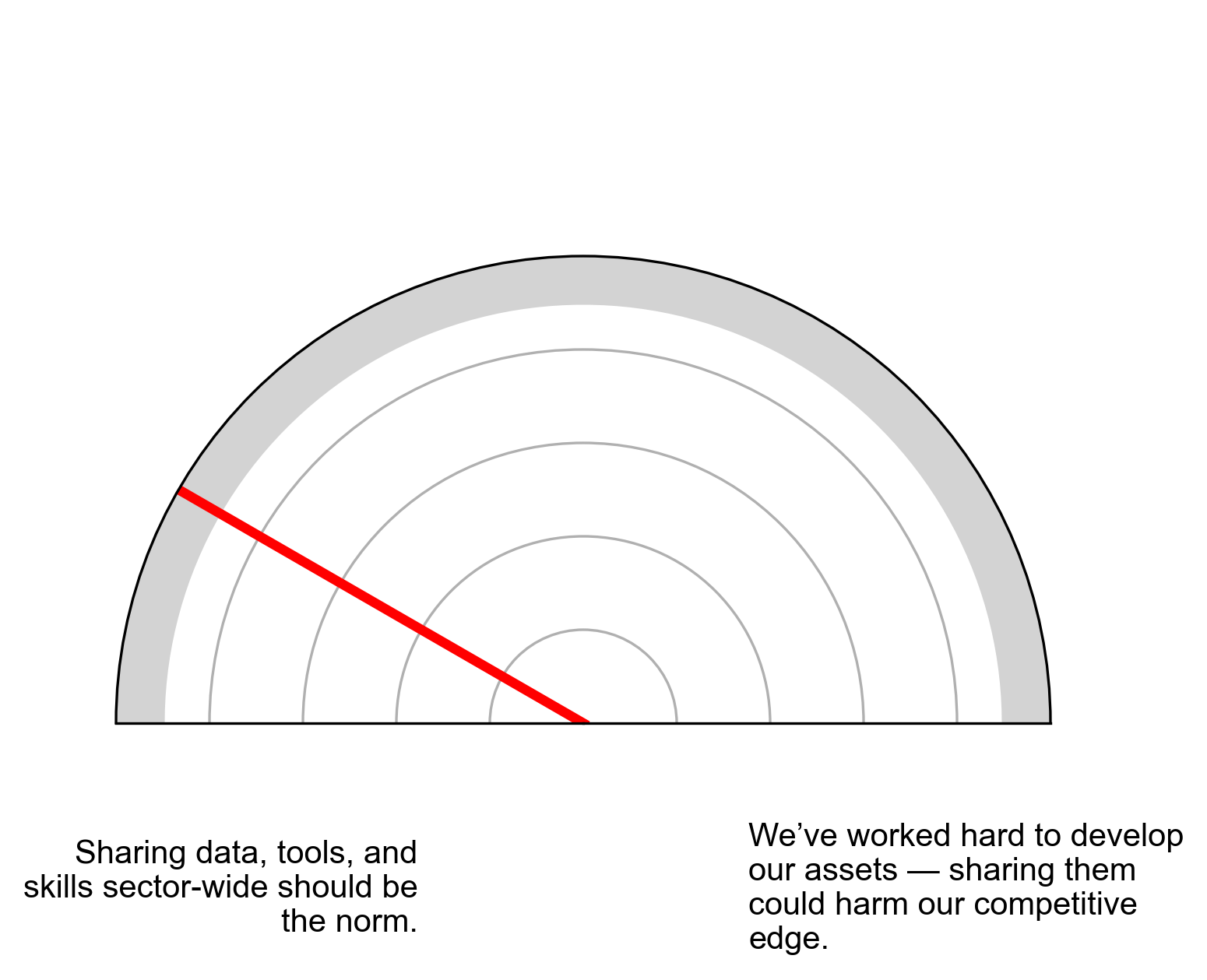
- The future of heritage depends on deeper collaboration across the sector: 1.6 / 4, versus “Collaboration is a nice-to-have — we must focus on our own organisation.”
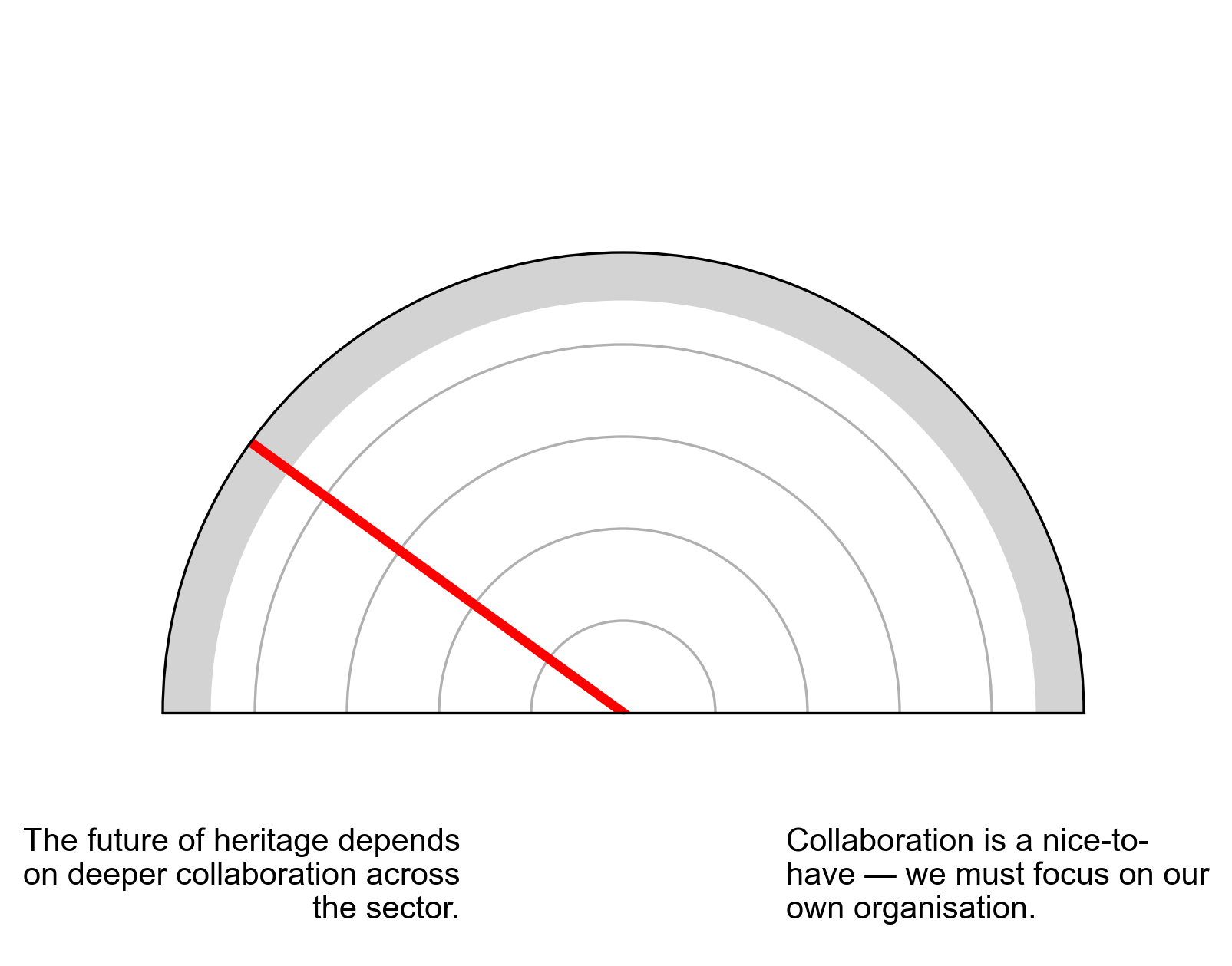
- True community partnership means sharing power, not just gathering feedback: 2.14 / 4, versus “Heritage organisations must retain final say to ensure responsible stewardship.”
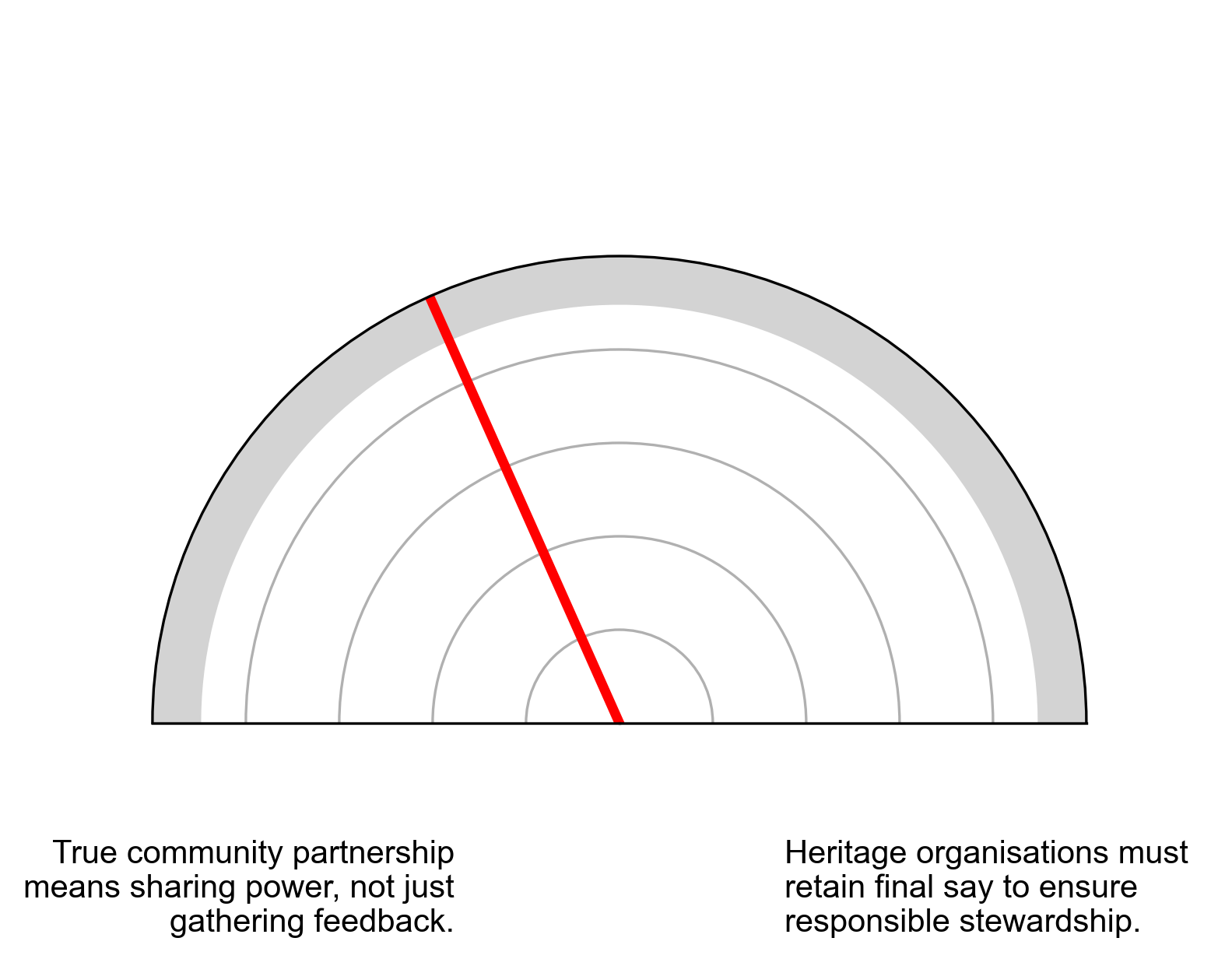
n=126
Panel members believe that collaboration extends beyond the sector
- Co-creating with communities makes our work more relevant and resilient:1.67 / 4, versus “We’re the experts — too much community input can dilute quality and focus.”
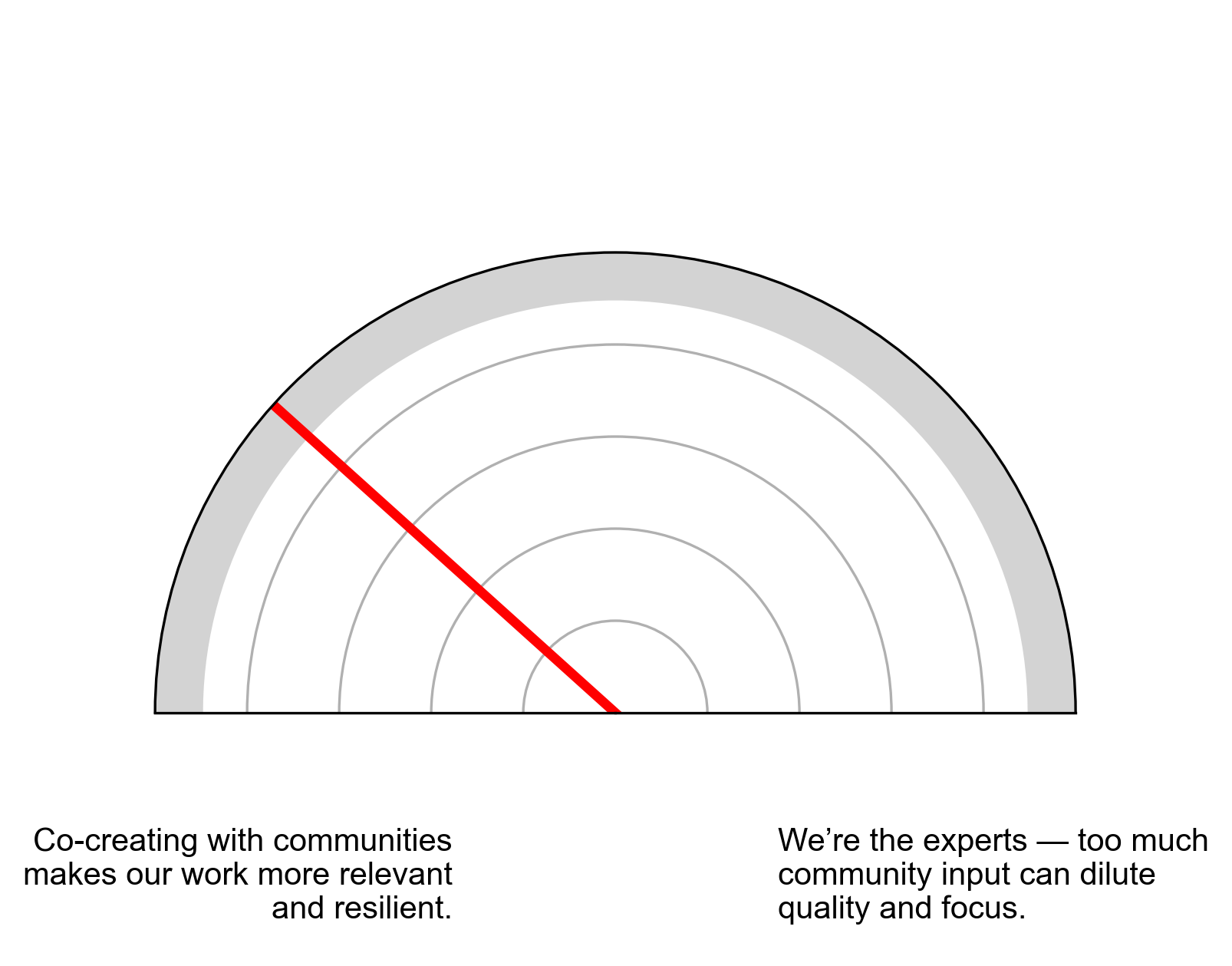
- National and local organisations need to act as one system, not in competition: 1.94 / 4, versus “Local and national heritage bodies have fundamentally different roles and should operate independently.”
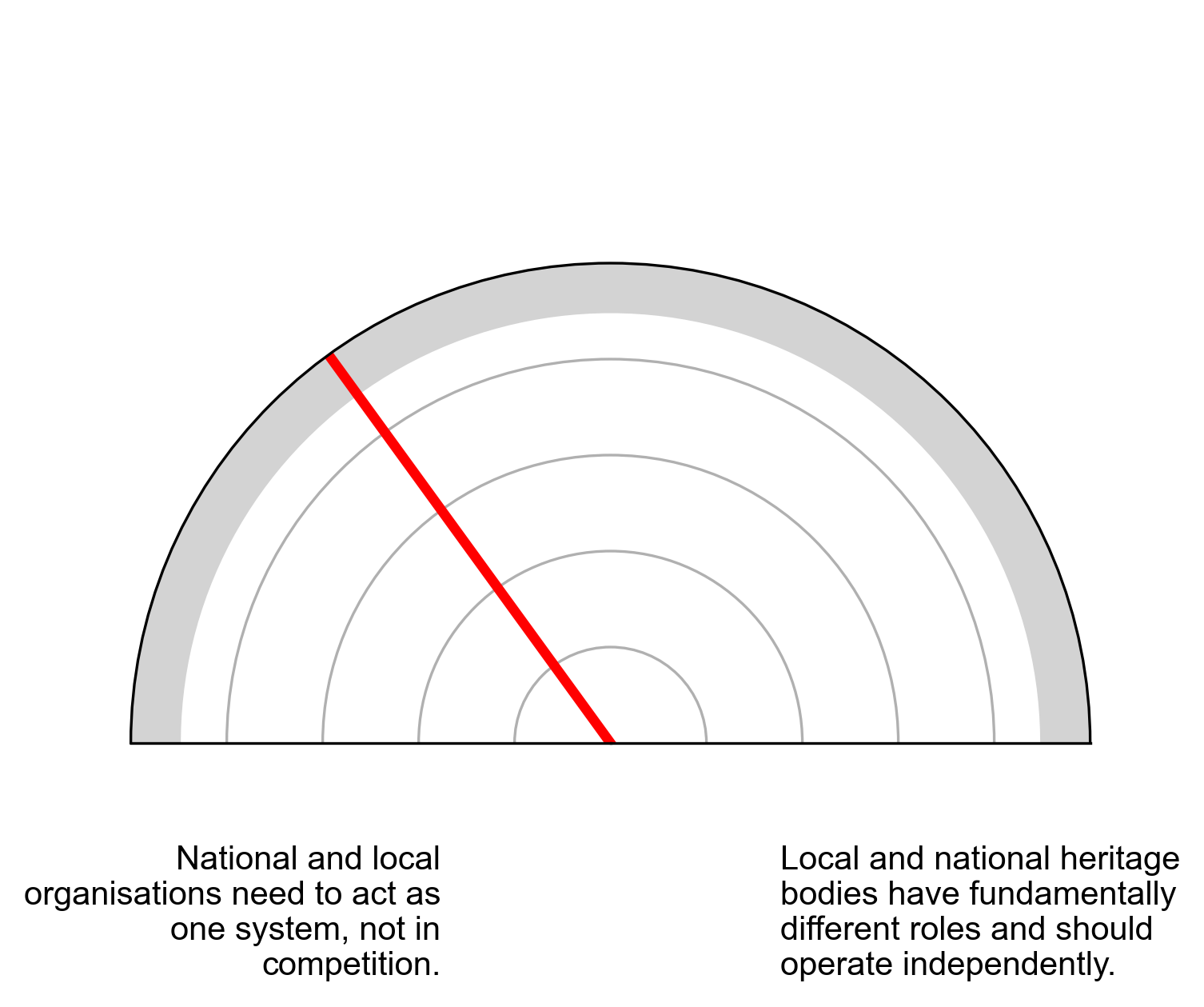
- We must build new partnerships outside the heritage sector to stay relevant: 1.94 / 4, versus “Heritage should remain focused on its core cultural mission, not be shaped by outside agendas.”
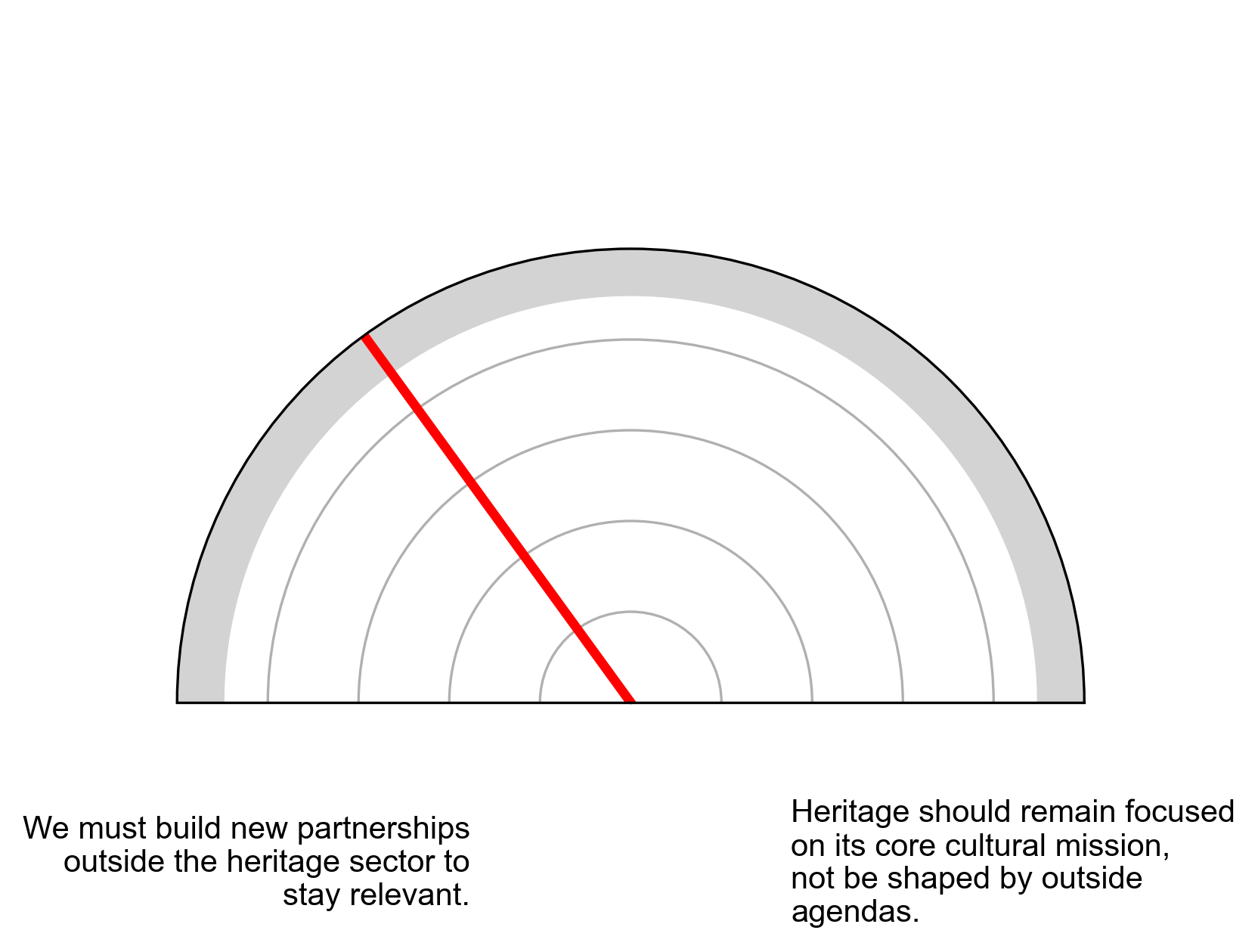
n=126
Respondents believe that inclusivity and relevance are intertwined
- We must actively address inequality and exclusion in how we tell stories: 2.02 / 4, versus “Our role is to preserve heritage, not to reshape it to meet social agendas.”
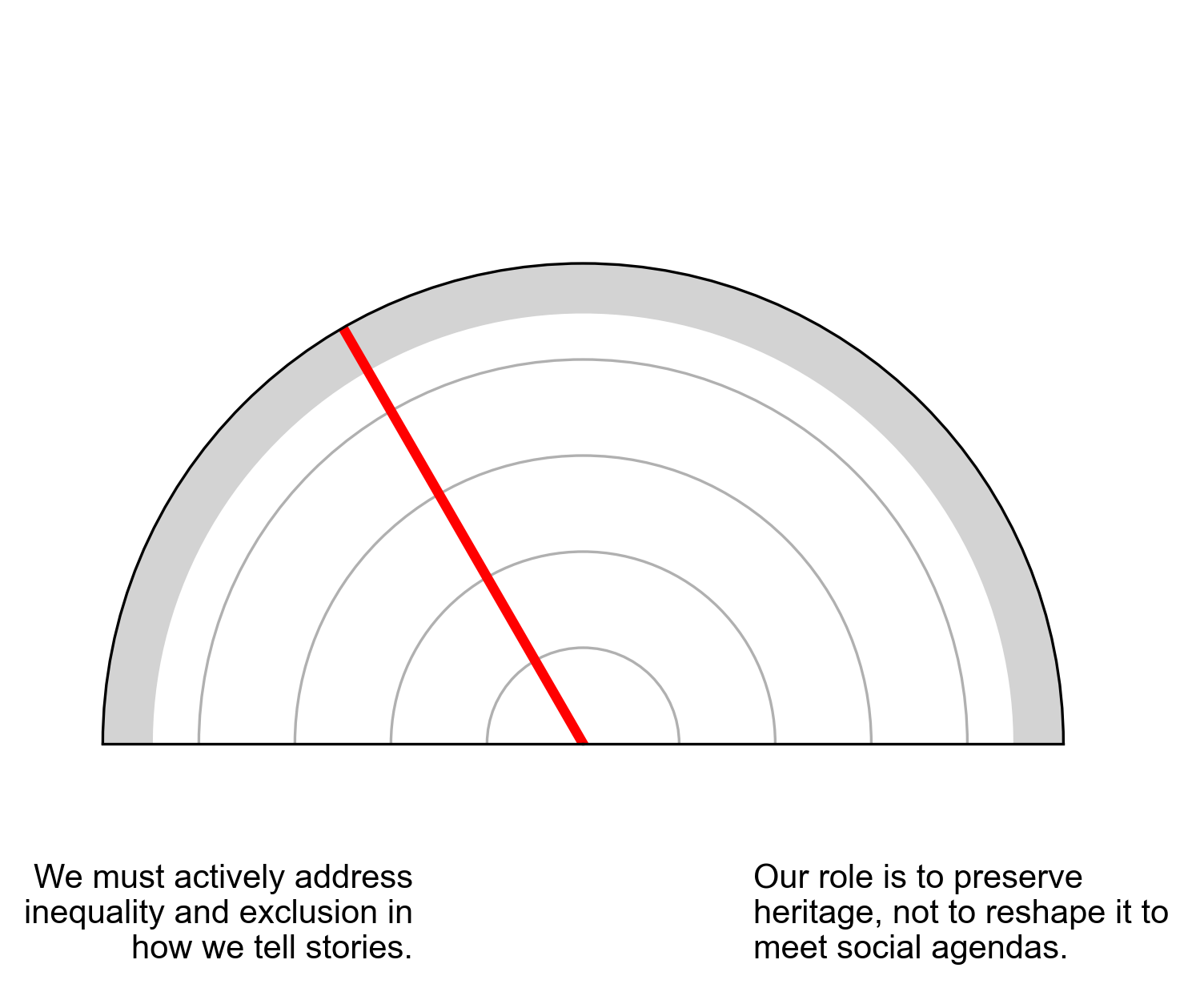
- True renewal means rethinking who heritage is for and who gets to tell the story: 2.26 / 4, versus “Heritage must be protected from political or cultural interference.”
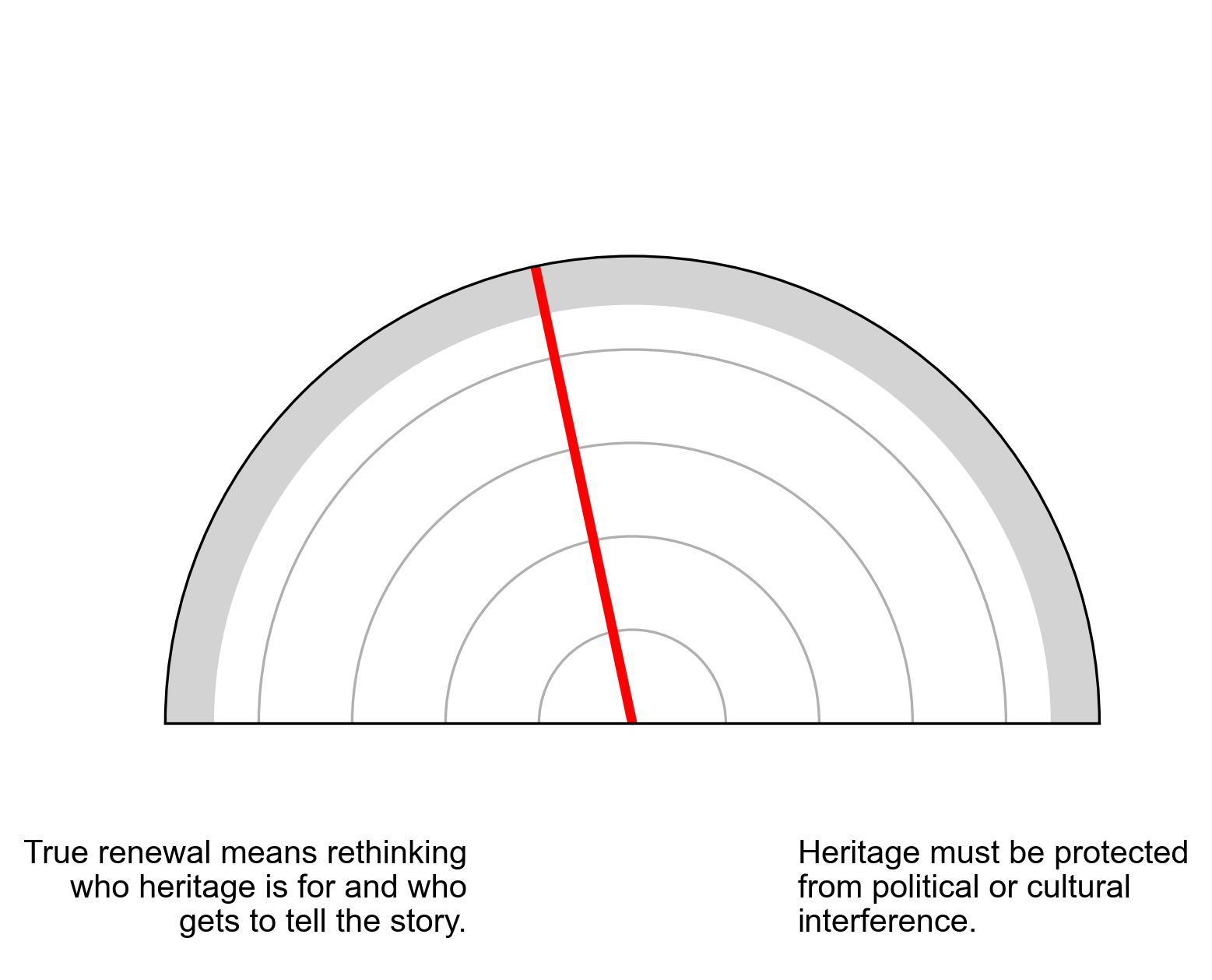
n=126
Looking at the distribution of responses, we can see an emerging preference that:
- 57% of respondents agreed heritage should challenge people, not simply reflect current trends, versus: Relevance means responding to what communities care about today.
How do we work together, across the sector and with our communities, to ensure heritage remains relevant in people’s lives?
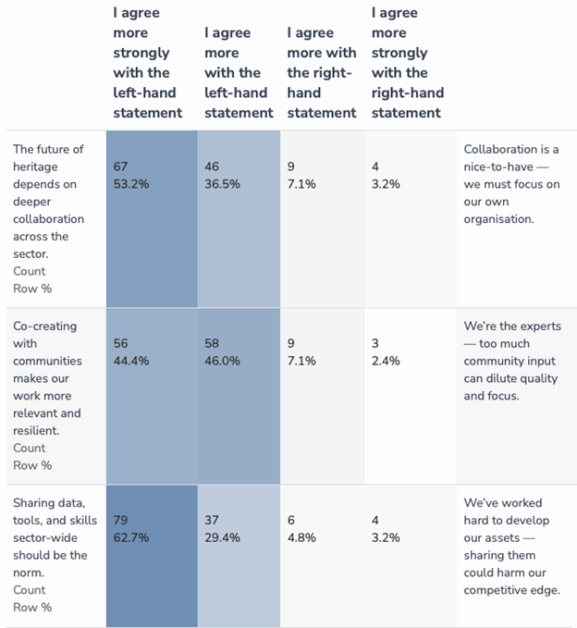
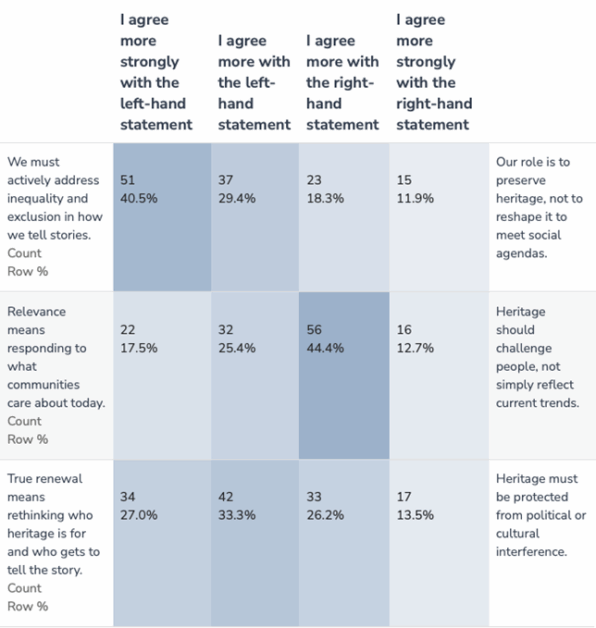
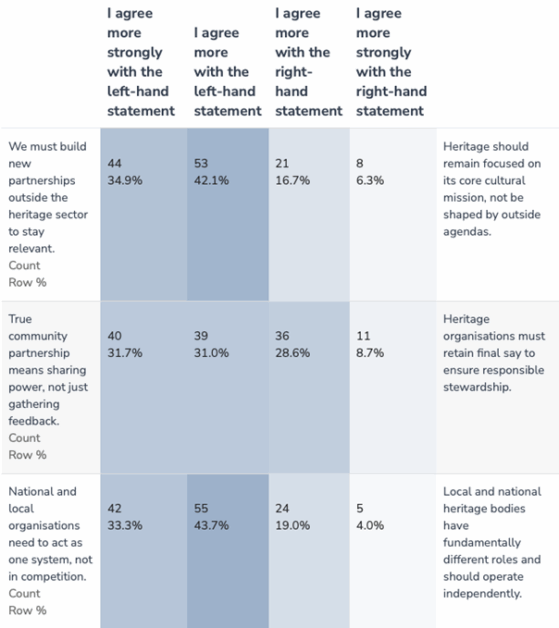
n=126
“We should be representative of the community” – working together locally is the key to relevance
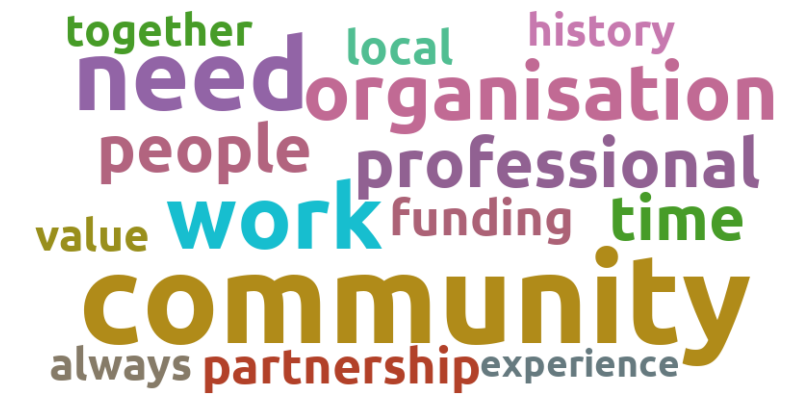
Following the statements, panel members were invited to give any additional comments. Respondents said their priority is to work with their local community, rather than aligning with sectors and interest groups, when ensuring heritage remained relevant:
Archives themselves must be regarded as authentic, trustworthy and free from political influence – but this does not stop archives being used to tell culturally relevant stories.
Collaboration and co-creation with community groups as well as isolated individuals has proved to be the core success of our work in recent years.
To protect heritage, we should be representative of the community where it is relevant and not leaning towards one particular sector.
A small number of panellists responded to the free-text option, directly answering the Big Question. These responses argued that heritage needs to overcome a perception of elitism and ensure heritage assets add value to their communities to remain relevant.
Read more
The National Lottery Heritage Fund has produced a guide on how collaborative working helps deliver better heritage projects, which can be read here
Pulse Monitor
Pulse Monitor is a monthly health check on the heritage sector, measuring its resilience, confidence and ambition.
Confidence when facing organisational challenges continues to grow
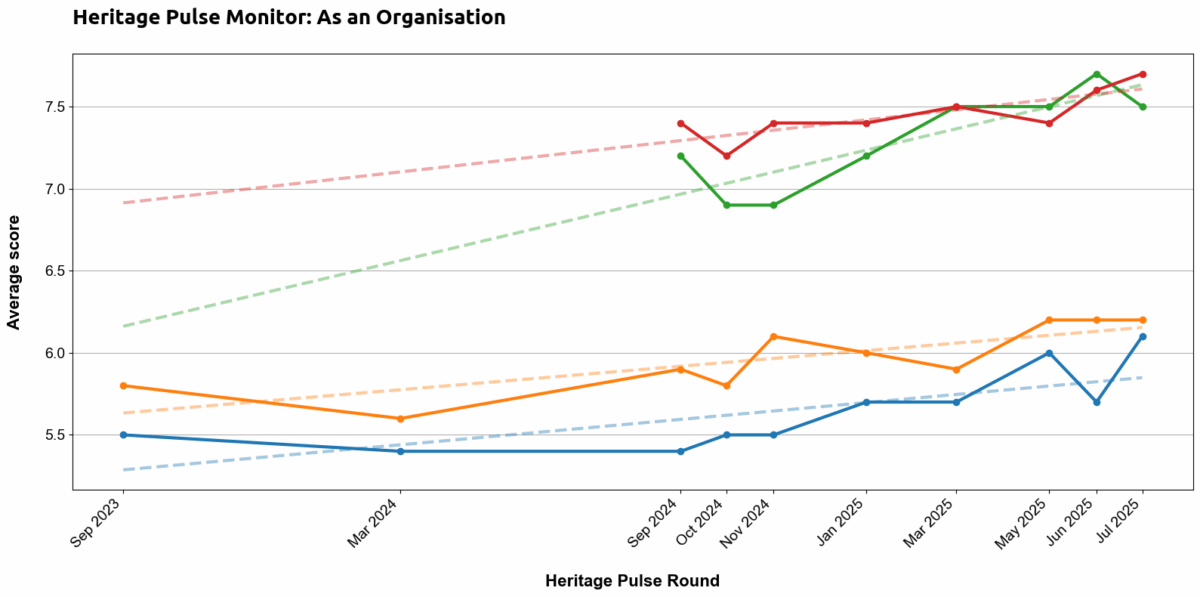

109 panel members completed this question
As summer ends the panel are increasingly confident when facing organisational challenges. Understanding of objectives and performance increased again to 7.7 / 10, and panel members’ ability to recruit new staff and volunteers increased to 6.1 / 10. These are the highest scores in Heritage Pulse for these measures.
Over the course of the spring and summer surveys, panel members’ ability to adapt to changing circumstances remained static at 6.2 / 10.
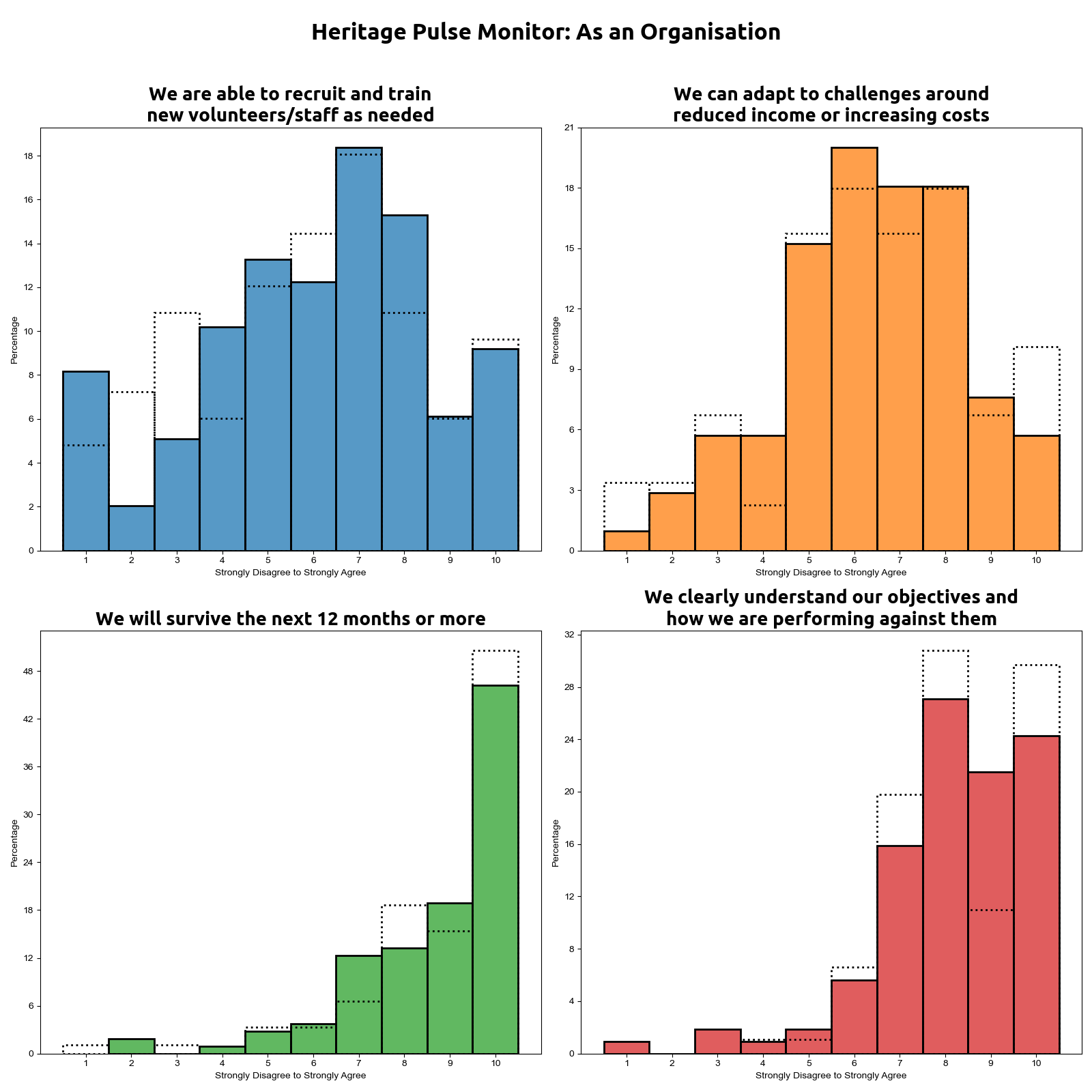
We can analyse the distribution of responses this month (in colour) compared to the previous survey (dotted outline).
While panel members are less confident that they will survive the next 12 months or more, over half of respondents scored 9 or 10 / 10 for this measure. The narrowest distribution of responses amongst the panel was on the understanding and performance of objectives, with responses clustered towards ‘Strongly Agree’.
Respondents’ perception of their impact trends upwards


108 panel members completed this question.
Respondents’ belief that they can adequately care for their collection / heritage increased again, while their belief that their work is valued by their community fell back to May’s level. Importantly, both measures continue to trend upwards.
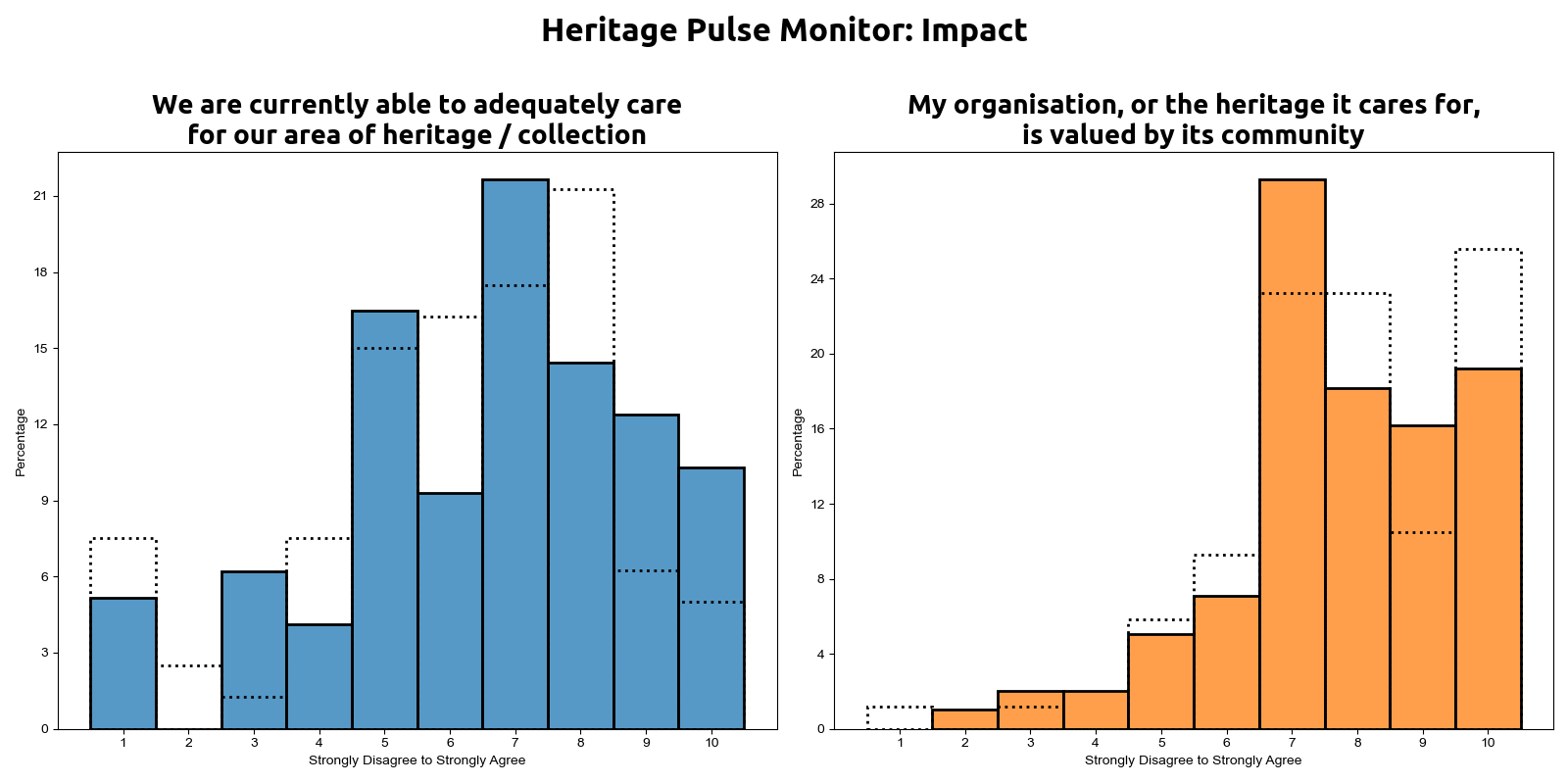
For both questions on personal impact the modal response was 7 / 10. One in five panel members selected this score regarding their ability to care for heritage; more than one-quarter did the same regarding the community’s value of their heritage.
Reported stress at an eighteen-month low
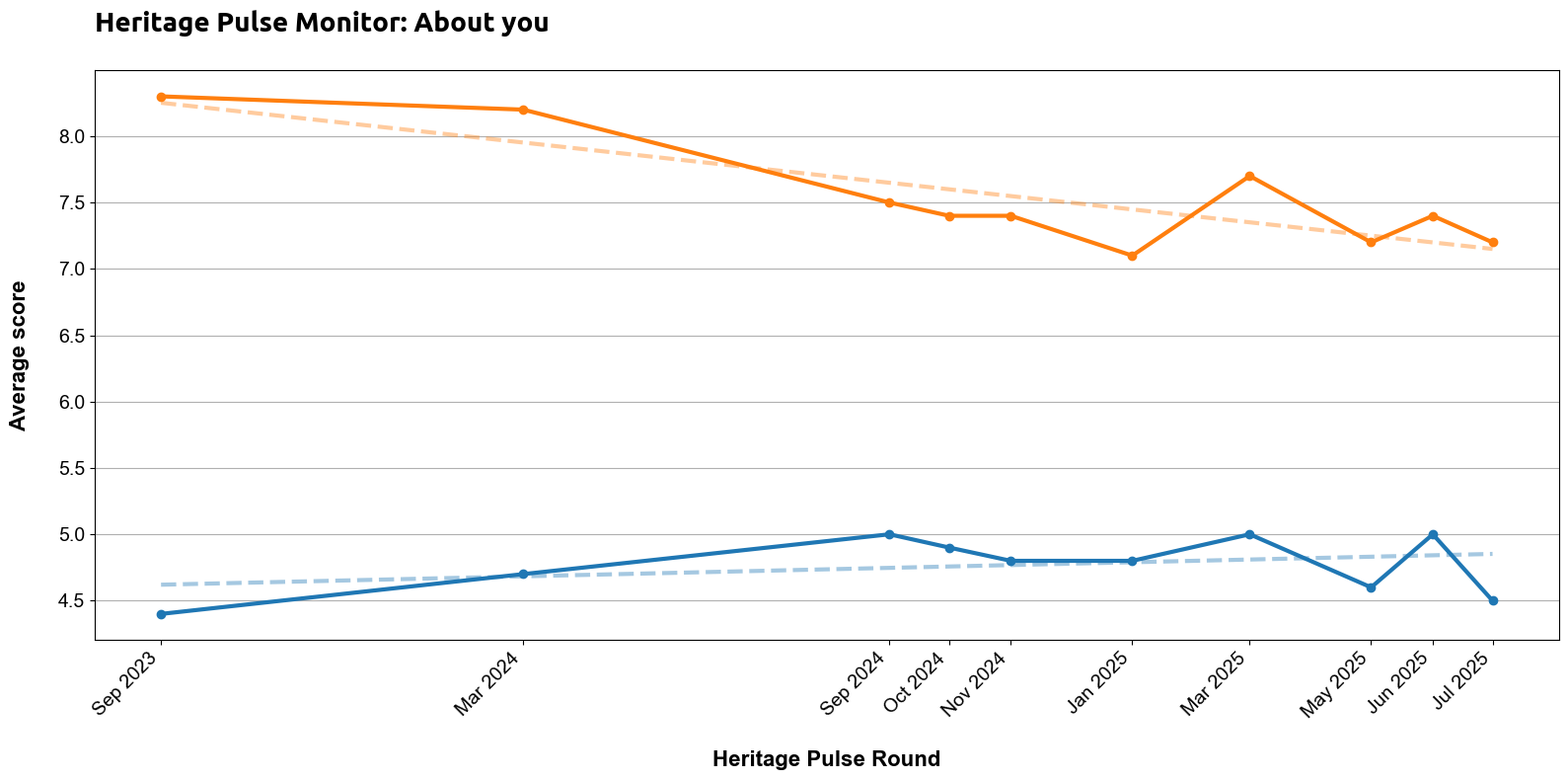

108 panel members completed this question
While those that want to remain at their current organisation fell to the level last seen in May, the reported stress of the panel decreased to its lowest level since September 2023.
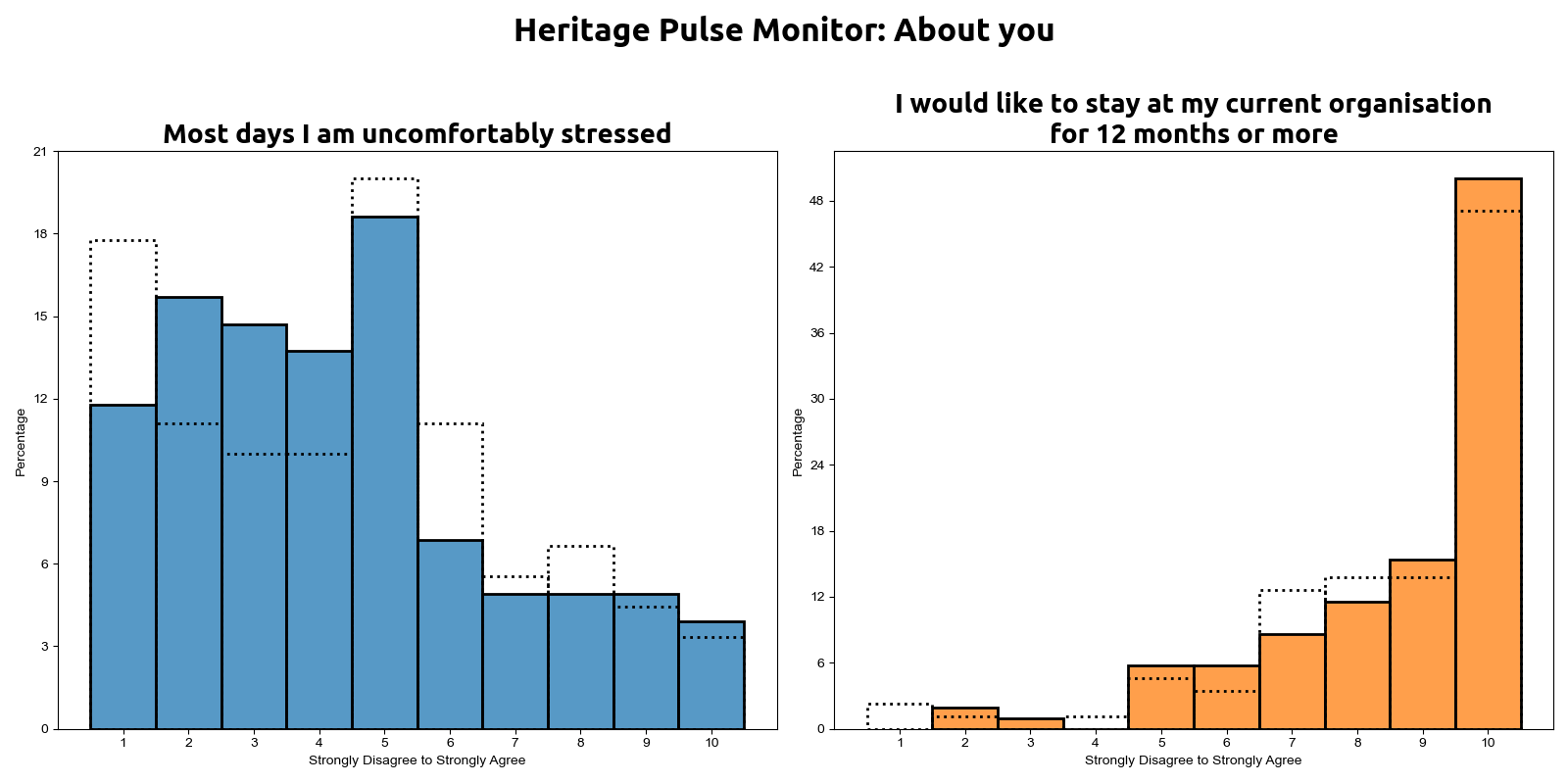
While the measure of panellists’ stress declined this month, this question saw the widest distribution of responses in the survey, showing a non-uniform experience across the sector. Around 50% of respondents scored 10 / 10 for their desire to stay at their current organisation, consistent with the distribution from previous round.
How representative of the Heritage Pulse panel were the July 2025 respondents?
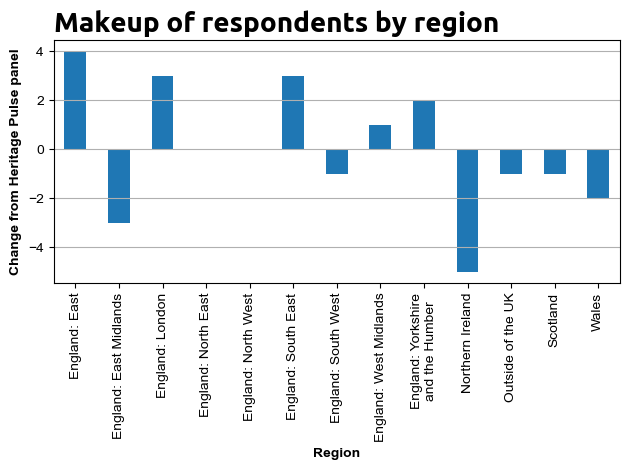
Compared to the entire panel, respondents in the East of England were the most overrepresented in this survey (plus four percentage points). By contrast, panel members in Northern Ireland were the most underrepresented, with the total proportion of respondents five percentage points lower than their total in the panel. This was followed by the East Midlands, three points lower than their respective totals.
ENDS



